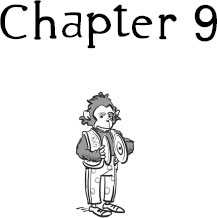
Nina took the key from the small timber cupboard in the kitchen where every key for every lock in their rambling old house was neatly lined up, labelled and hanging on a hook. Labelling had been one of her mother’s obsessions, which was just as well as her father wouldn’t have had the first clue where anything was without it. She raced downstairs and through the red velvet curtain that partitioned the museum from the rest of the house. Nina unlocked the wide timber door, making sure to leave it open. Her father would not be home for a while yet.
The girl walked among the cabinets with their strange and wonderful workings. Most of the instruments in the museum were so rare that they didn’t exist anywhere else in the world. She stopped in front of her favourite piece.
Nina thought back to the time when she was just five years old, visiting the market fair in Basel with her grandfather. She had been so excited to take the long journey by train, to wander past the colourful stalls and exotic foods. She remembered rounding the corner and seeing it for the very first time. A timber-and-glass case with miniature musicians – men and women dressed in once-fine clothes, monkeys with tarnished cymbals and ballerinas in moth-eaten tutus, their faces dull and grimy from the spectre of time. The sounds it made were terrible too. She had blocked her ears at the ghastly clash of percussion and organ pipes. She hadn’t known why they had travelled so far until that very case was delivered to their door several weeks later.
For months Nina watched her grandfather work on it, first pulling the whole thing apart, then painstakingly putting it back together until, finally, it was perfect. Her mother had sewn new clothes for the figurines so they were once again suitably attired. The spinning ballerinas with bright eyes and rosy cheeks stood alongside monkeys with plush fur and gleaming cymbals. Nina’s father had looked in on the pair’s progress from time to time but he knew nothing of the inner workings of such contraptions. Sebastien Ebersold spent his days outdoors on the mountainside unlike Nina’s grandfather, who had been a watchmaker – a man who understood the precision required to restore such splendid creations.
The unveiling had been spectacular. Her grandfather, wearing his lucky black hat, had called the family down one evening after dinner. Nina had leapt about all over the place as excited as the day she’d first spotted the cabinet in the market.
‘Is it ready, Opa?’ she’d said. ‘Is it really ready?’
‘I think so.’ He’d smiled at her, then walked around to the side of the cabinet and pulled the handle.
It had begun slowly as though the figurines were awakening from a deep, enchanted sleep. The tempo gradually quickened and the men, women, ballerinas and monkeys were soon twirling and prancing and strumming and plucking as the tune took hold.
Nina remembered how her grandfather had tears in his eyes as he watched the tableau come to life. Nina and her mother danced a jig arm in arm and her father stood shaking his head, wondering at his father-in-law’s skill and his wife’s eye for such fine detail.
That was long ago, when all had been right in Nina’s world. Tourists would come to see Lars Dettwiller’s Mechanical Musical Cabinet Museum filled with violinas, orchestrions, symphonions, organs for grinding, musical chairs and all other manner of automats. The museum was a renowned Alpine attraction, no doubt helped by its location across the cobblestoned street from the most beautiful hotel in all of Zermatt, the Grand Hotel Von Zwicky. The Baron and Baroness visited often and recommended the museum far and wide. There was always something new arriving from a far-flung corner of the globe, often in pieces, tarnished, broken and neglected, until her grandfather set to work restoring it.
But then almost a year ago, just after her tenth birthday, Nina had arrived home from school to find her grandfather sitting opposite her father at the kitchen table; the old man’s eyes wet and his face ashen, her father looking like a ghost. Nina would never forget the moment she discovered her mother had died. They called it an aneurysm, but she called it the end of the world.
Her grandfather closed the museum the very next day and had not stepped foot in it since. They had lost him to despair. But surely, Nina thought, the music box had been a sign that Opa wanted to live again – she just had to help him find the way.
Her father was wrong. Opa shouldn’t go to a home where old people ate their suppers at four in the afternoon and sat around all day, suspended in a no-man’s-land between life and death. She knew about those places. Her father’s mother had been in one. Nina didn’t remember much about the woman but she could recall the building and its antiseptic smell, as if she had gone there a thousand times, instead of just the two visits her parents had taken her on. She wasn’t going to let her grandfather suffer the same fate.
Nina looked at the dusty orchestrion. ‘Are you ready?’ she asked the figurines.
The girl walked to the side of the machine and pulled the lever. Slowly, as always, the performers took up their instruments and the tune began. She stared through the glass at the motley band of players and crossed her fingers. If he heard them, she thought, maybe it would be enough to bring him back to them.